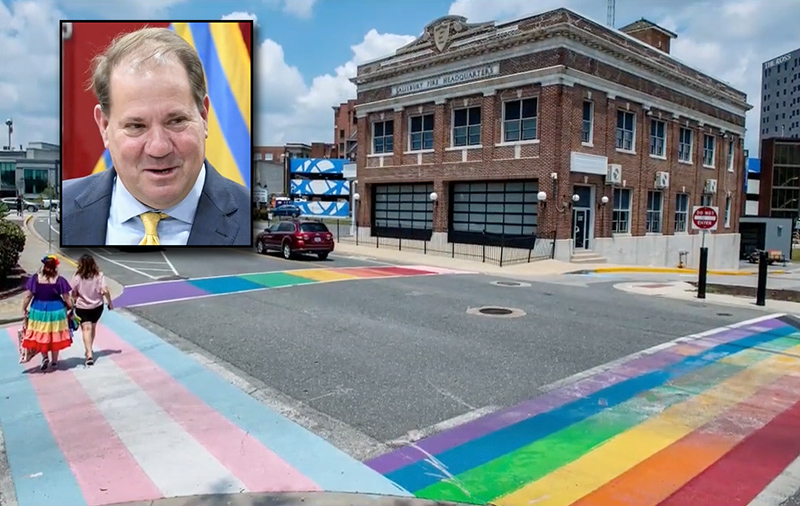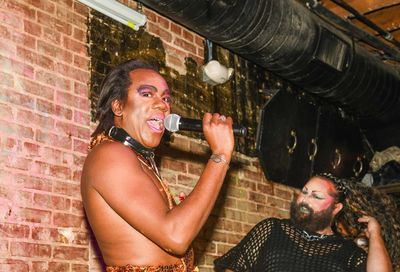Virginia Lets Counselors Resume Talk Conversion Practices
A judge’s consent decree blocks enforcement of Virginia’s ban on conversion therapy for minors by licensed counselors using verbal-only methods.

A Henrico County Circuit Court judge has partially overturned Virginia’s ban on conversion therapy by signing a June consent decree with Attorney General Jason Miyares and the Virginia Department of Health Professions.
The decree stems from a lawsuit by Front Royal counselors John and Janet Raymond and allows licensed professionals to conduct “talk therapy” aimed at convincing minors to “change” or suppress feelings related to their sexual orientation or gender identity, provided they use only verbal methods and avoid physical conversion practices.
In 2020, a bipartisan group of Virginia lawmakers approved the ban on conversion therapy for minors, arguing the practice is ineffective and may even constitute “fraud” if it fails to deliver on its promised outcomes.
The ban applied to therapists and counselors engaging in coercive “talk therapy” as well as “aversion therapy” practices that inflict physical pain on minors.
Examples include electric shock therapy, inducing nausea in response to certain stimuli, snapping rubber bands on the wrist, creating welts and bruises when unwanted thoughts arise, or forcing youths to carry backpacks full of rocks with added weight for thoughts or behaviors a therapist deems “immoral” or “inappropriate.”
Proponents of conversion therapy argue it’s necessary to help people address unwanted same-sex attraction or feelings of gender dysphoria, with some claiming that a religious-based approach can assist in “changing” a person’s sexual orientation or gender identity — or at least curbing urges to engage in same-sex activity or deviate from traditional gender norms.
Opponents argue that the assumptions underlying conversion therapy — namely, that LGBTQ people are psychologically or emotionally damaged or in need of “fixing” — are deeply flawed, and that studies show the therapy is largely ineffective.
They also contend that, in the case of minors, it is often not voluntary but forced upon them by adults, and that even “talk therapy” can inflict serious psychological harm, including depression, self-harm, and suicidal ideation.
Virginia’s ban was challenged by two Front Royal-based counselors, John and Janet Raymond, who argued it violated their religious freedom and free speech rights under both the Virginia Constitution and the federal Religious Freedom Restoration Act.
The Raymonds typically engage in “talk” therapy with minors through voluntary conversations, prayer, and Scripture readings, aiming to dissuade them from exploring or acting on feelings of same-sex attraction or gender dysphoria. They argued the law prevented them from treating patients as they see fit.
Under the consent decree, the Virginia Department of Health Professions will no longer discipline or reprimand conversion therapists who engage solely in “talk therapy,” though it may still enforce bans on physical conversion-therapy practices. The court’s order applies to all licensed counselors in Virginia, not just the Raymonds.
Conversion therapy is currently banned in 23 states and the District of Columbia, although Christian therapists have repeatedly argued that restrictions on “talk therapy” infringe on their religious freedoms and free speech rights, emphasizing personal beliefs while downplaying whether the therapy benefits their clients.
The U.S. Supreme Court recently agreed to hear a case next session challenging whether a similar ban in Colorado violates both therapists’ personal beliefs opposing homosexuality or transgender identity, and the rights of clients who seek to align their identities with religious beliefs that LGBTQ identity is “sinful” or not part of God’s plan.
Democrats largely criticized the court order as an infringement on the commonwealth’s responsibility to regulate therapists and prevent potentially dangerous practices in the name of public health.
“I have no problem if somebody wants to go look at religious counseling from their priest or their minister, their rabbi, their imam — that’s perfectly fine,” State Senate Majority Leader Scott Surovell (D-Mount Vernon) said during a press call.
“When somebody goes to get therapy from somebody licensed by the Commonwealth of Virginia,” he continued, “there’s a different set of rules applied. You can’t just say whatever you want because you have a license. That’s why we have professional standards, that’s why we have statutes.”
State Sen. Danica Roem (D-Manassas), the commonwealth’s first out transgender lawmaker, said she has experienced efforts to dissuade her from embracing her identity.
“I spent 13 years in Catholic school — I heard everything,” she said. “I am just as trans today at age 40 as I was when I got into Catholic school in 4th grade.”
Support Metro Weekly’s Journalism
These are challenging times for news organizations. And yet it’s crucial we stay active and provide vital resources and information to both our local readers and the world. So won’t you please take a moment and consider supporting Metro Weekly with a membership? For as little as $5 a month, you can help ensure Metro Weekly magazine and MetroWeekly.com remain free, viable resources as we provide the best, most diverse, culturally-resonant LGBTQ coverage in both the D.C. region and around the world. Memberships come with exclusive perks and discounts, your own personal digital delivery of each week’s magazine (and an archive), access to our Member's Lounge when it launches this fall, and exclusive members-only items like Metro Weekly Membership Mugs and Tote Bags! Check out all our membership levels here and please join us today!






























You must be logged in to post a comment.